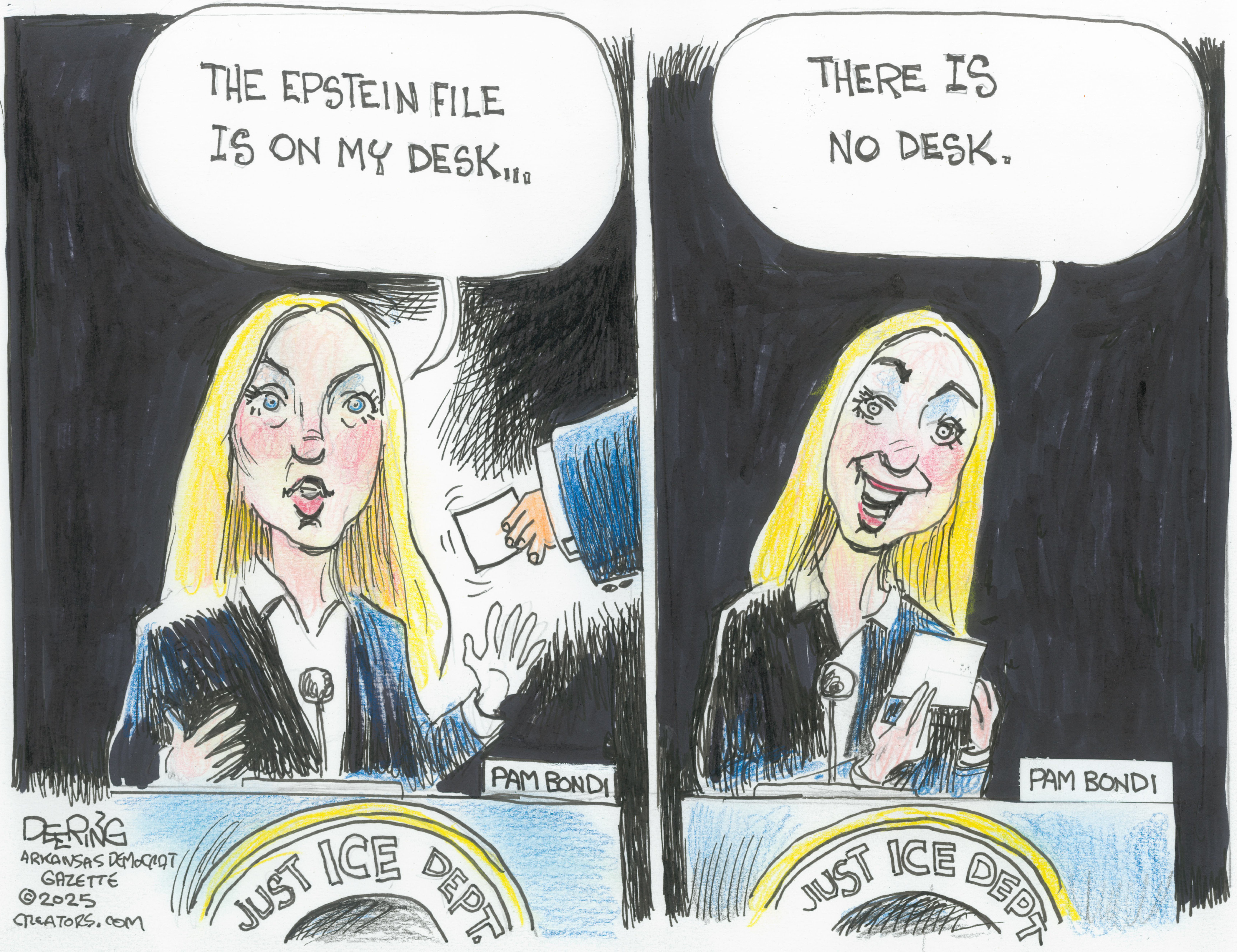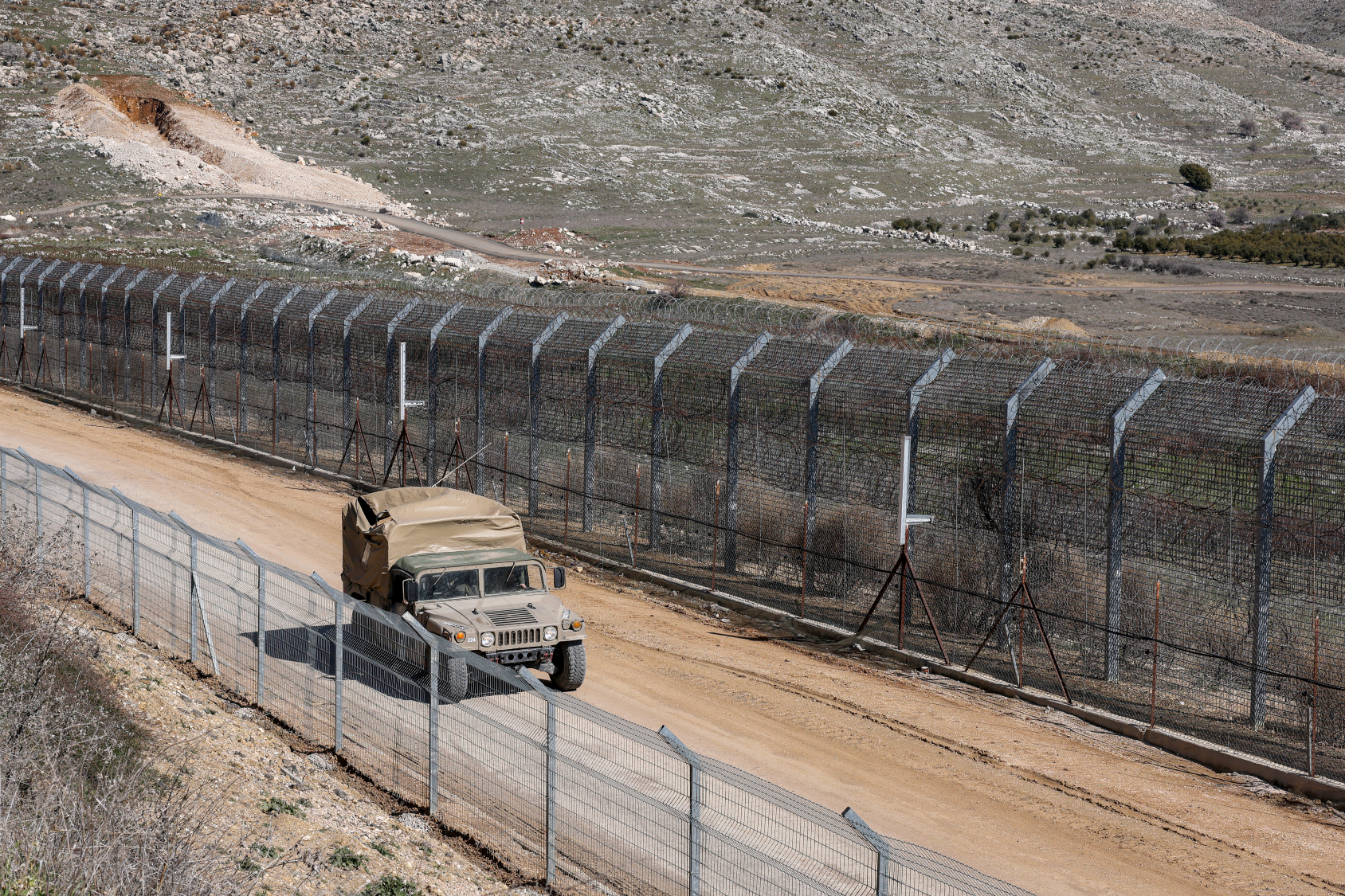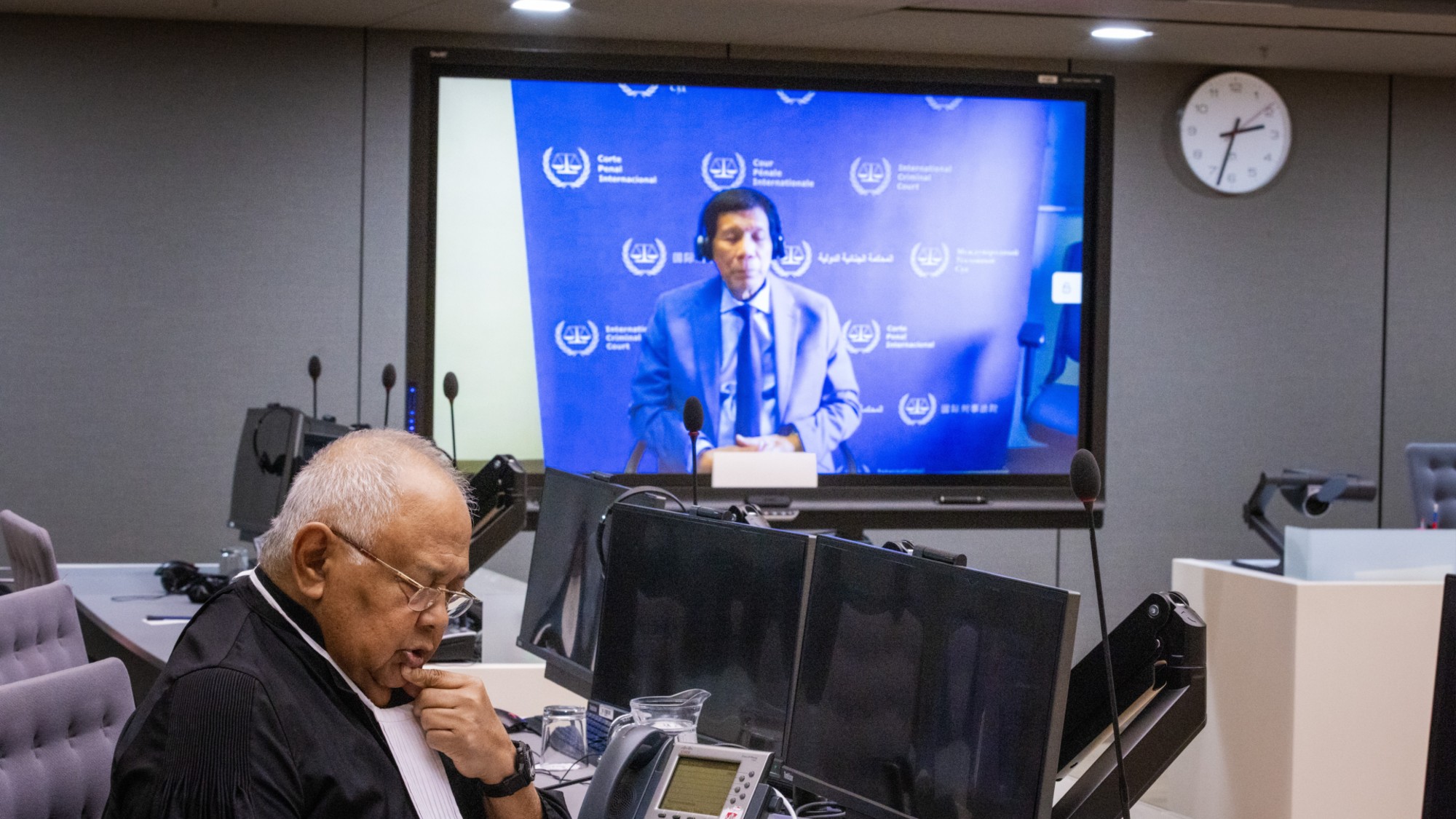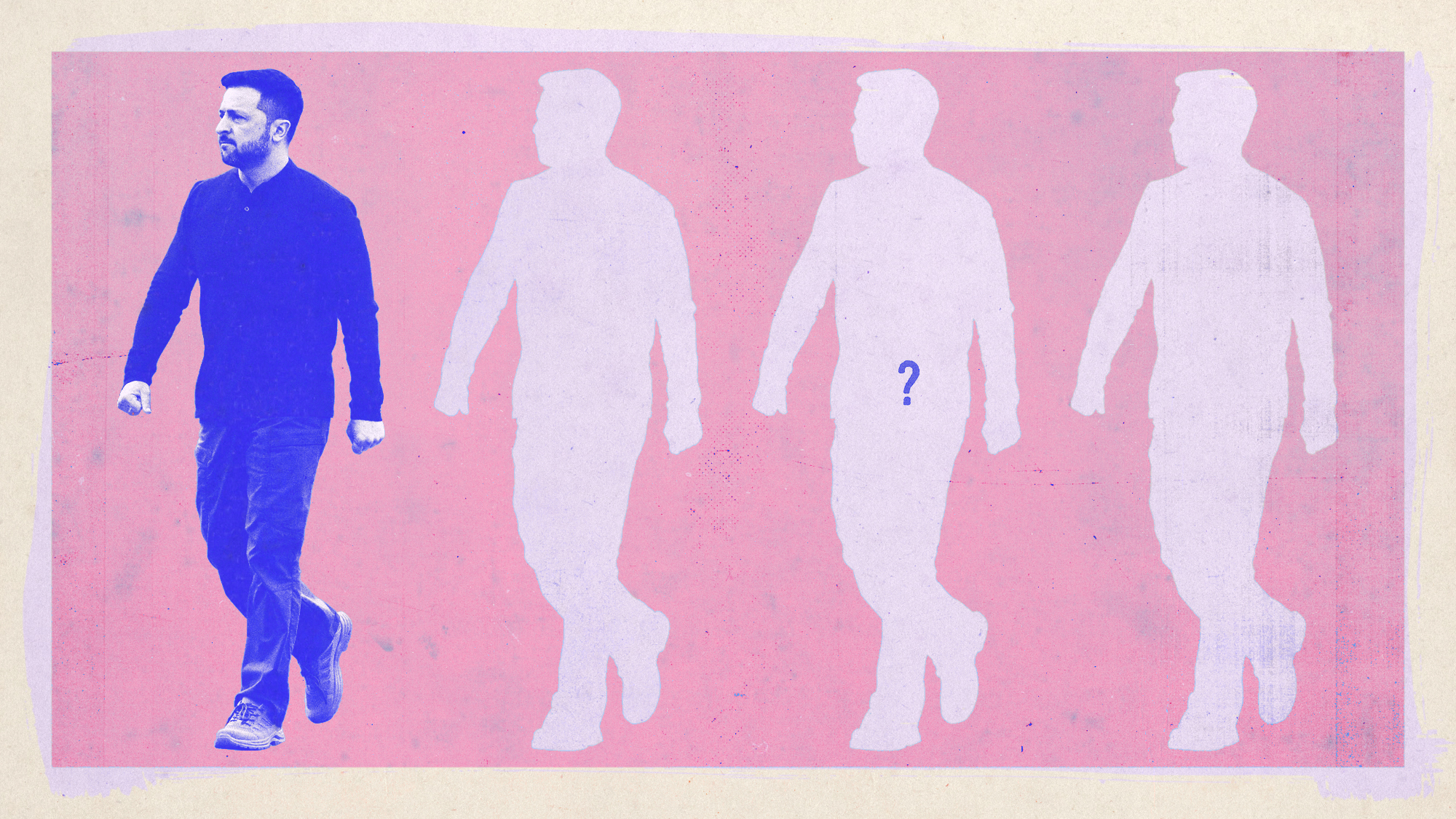How close is America to a new civil war?
It's not inevitable. Maybe not even likely. But it's still worth debate.


With the one-year anniversary of the Jan. 6 insurrection looming later this week, analysts and pundits have put the worst-case scenario for the American future on the table for public debate and discussion: Is the country coming unglued? Are we approaching the point where self-government becomes impossible? Will political violence break out again, this time spreading beyond our capacity to contain it?
Is the United States careening toward a second civil war?
Canadian novelist and commentator Stephen Marche is among the most confident of the pessimists. In an excerpt from his new book published in The Guardian, Marche points out that hardly anyone foresaw the outbreak of the original American Civil War, even as the conflagration was breaking out at a military installation on the South Carolina coast.
Subscribe to The Week
Escape your echo chamber. Get the facts behind the news, plus analysis from multiple perspectives.

Sign up for The Week's Free Newsletters
From our morning news briefing to a weekly Good News Newsletter, get the best of The Week delivered directly to your inbox.
From our morning news briefing to a weekly Good News Newsletter, get the best of The Week delivered directly to your inbox.
It's the same today, Marche claims, with the right becoming militarized in response to the widespread delegitimation of American political institutions. Those "structures of power" no longer adequately represent the views of the majority, and Republicans are ready to substitute "the politics of the gun."
Writing in New York magazine, author Jonathan Chait adds an additional layer to the story of institutional rot. Just as the Republican Party at first opposed former President Donald Trump's candidacy and nomination in 2016 but eventually rallied around his presidency, so its leading officials initially responded to the violence on Capitol Hill a year ago with outrage but eventually retreated to excusing or even offering a backhanded defense of those who stormed the Congress and the man who incited them to do it. Republican officeholders might not explicitly endorse overturning democratic elections, but they clearly don't think the attempt is anything to get too worked up about — at least, not if the head of their own party is the one behind it.
That could well lead to a replay of the events of Jan. 6 during a future election, and on a vaster scale. But, as The Week's own Noah Millman argues in The New York Times, there's no guarantee that Republicans will be the party to initiate extralegal actions.
Believing the threat comes solely from the right leads many Democrats to put their faith in a legislative solution to the danger of civil unrest — usually through the reform of election laws. But in truth there is no such legislative solution, Millman claims, because "the deepest problem threatening American democracy" is "the profound lack of trust in the legitimacy of the opposition."
We saw Democrats reject this legitimacy in 2000 and to some extent again in 2016, while the GOP went even further in 2020. The suspicion is mutual, and, as long as it stays that way, we run the risk of a buckling system and the outbreak of violence in response.
Yet that doesn't mean a civil war is inevitable or even likely. In a long essay in Vox, Zack Beauchamp reviews a wide range of scholarship and case studies of democratic breakdown across the world in attempting to think through possible scenarios for the American future. They range from the U.S. muddling through its troubles without much change to the outbreak of several forms of political violence to the rise of outright authoritarian government to something much more like an actual civil war.
Many scholars consider the risk of a civil war to be remote, and I suspect they're right. But these recent pieces by Marche, Chait, Millman, and Beauchamp are still worthwhile, because a remote possibility that's extremely bad is still worth attempting to forestall.
A free daily email with the biggest news stories of the day – and the best features from TheWeek.com
Damon Linker is a senior correspondent at TheWeek.com. He is also a former contributing editor at The New Republic and the author of The Theocons and The Religious Test.
-
 5 unusually elusive cartoons about the Epstein files
5 unusually elusive cartoons about the Epstein filesCartoons Artists take on Pam Bondi's vanishing desk, the Mar-a-Lago bathrooms, and more
-
 Lemon and courgette carbonara recipe
Lemon and courgette carbonara recipeThe Week Recommends Zingy and fresh, this pasta is a summer treat
-
 Corbynism returns: a new party on the Left
Corbynism returns: a new party on the LeftTalking Point Jeremy Corbyn and Zarah Sultana's breakaway progressive party has already got off to a shaky start
-
 One year after mass protests, why are Kenyans taking to the streets again?
One year after mass protests, why are Kenyans taking to the streets again?today's big question More than 60 protesters died during demonstrations in 2024
-
 Israel-US 'rift': is Trump losing patience with Netanyahu?
Israel-US 'rift': is Trump losing patience with Netanyahu?Today's Big Question US president called for an end to Gaza war and negotiated directly with Hamas to return American hostage, amid rumours of strained relations
-
 What happens if tensions between India and Pakistan boil over?
What happens if tensions between India and Pakistan boil over?TODAY'S BIG QUESTION As the two nuclear-armed neighbors rattle their sabers in the wake of a terrorist attack on the contested Kashmir region, experts worry that the worst might be yet to come
-
 Why Russia removed the Taliban's terrorist designation
Why Russia removed the Taliban's terrorist designationThe Explainer Russia had designated the Taliban as a terrorist group over 20 years ago
-
 Inside the Israel-Turkey geopolitical dance across Syria
Inside the Israel-Turkey geopolitical dance across SyriaTHE EXPLAINER As Syria struggles in the wake of the Assad regime's collapse, its neighbors are carefully coordinating to avoid potential military confrontations
-
 'Like a sound from hell': Serbia and sonic weapons
'Like a sound from hell': Serbia and sonic weaponsThe Explainer Half a million people sign petition alleging Serbian police used an illegal 'sound cannon' to disrupt anti-government protests
-
 The arrest of the Philippines' former president leaves the country's drug war in disarray
The arrest of the Philippines' former president leaves the country's drug war in disarrayIn the Spotlight Rodrigo Duterte was arrested by the ICC earlier this month
-
 Ukrainian election: who could replace Zelenskyy?
Ukrainian election: who could replace Zelenskyy?The Explainer Donald Trump's 'dictator' jibe raises pressure on Ukraine to the polls while the country is under martial law
